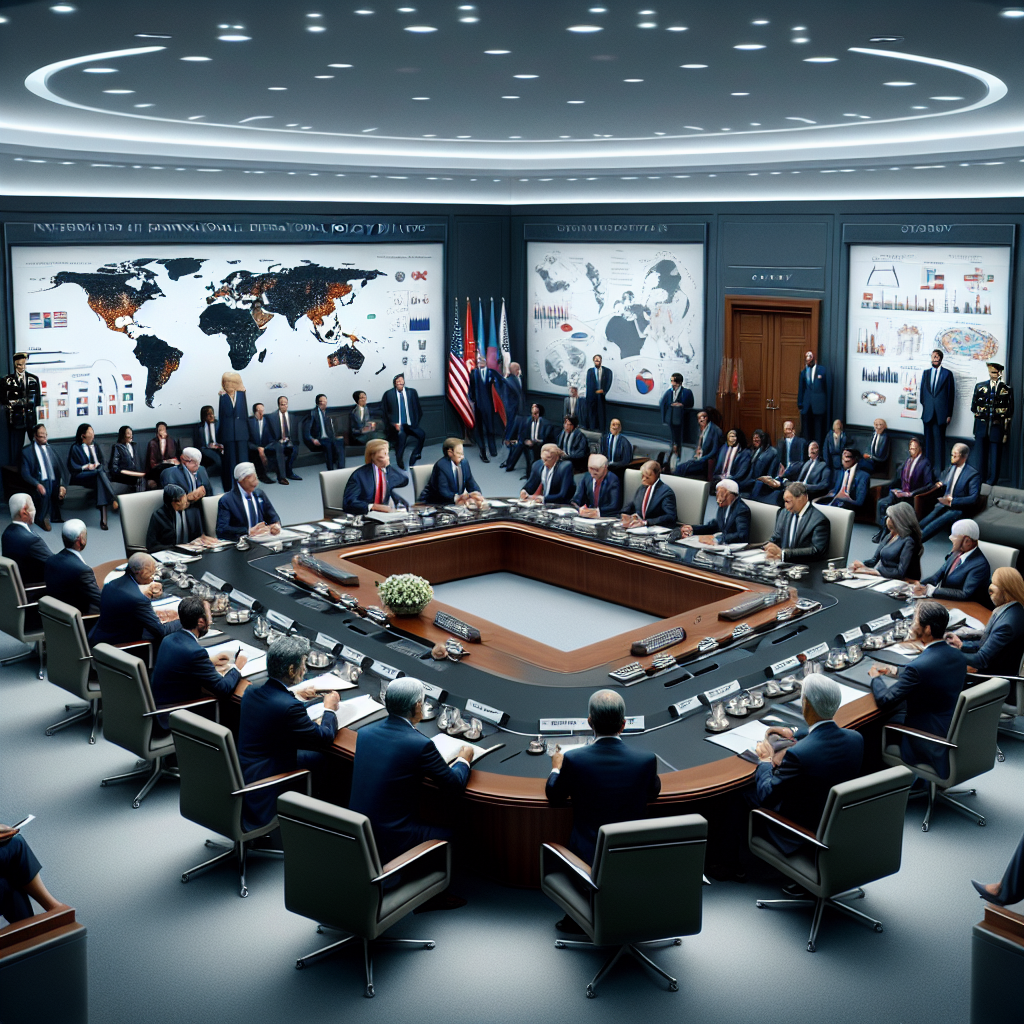Understanding Qatar’s Lobbying Strategy During the Trump Administration
During Donald Trump’s presidency, Qatar undertook an intensified lobbying campaign in Washington, D.C., to secure favorable U.S. foreign policy outcomes amid shifting alliances and growing tensions in the Middle East. This article explores the motivations behind Qatar’s strategic engagement, the key players involved, and the implications for U.S. foreign policy and defense contracting sectors.
Background: Middle East Geopolitical Tensions Prompted Diplomatic Maneuvering
In June 2017, a significant diplomatic crisis erupted when Saudi Arabia, the United Arab Emirates (UAE), Bahrain, and Egypt abruptly severed diplomatic ties with Qatar. The quartet accused Doha of supporting terrorism and fostering close relations with Iran—allegations that Qatar denied emphatically. The blockade, which included cutting off trade, flight routes, and diplomatic access, placed immense pressure on Qatar to realign its foreign strategy and safeguard national security.
The U.S. Role as a Critical Power Broker
Given its considerable influence in the Middle East, the United States was viewed as an essential mediator by all parties involved in the Gulf crisis. Qatar, aware of the strategic weight of Washington’s stance, launched a comprehensive lobbying campaign targeting key officials within the Trump administration to counter the coordinated diplomatic pressure.
Qatar’s Lobbying Tactics and Partnerships
Qatar employed a multipronged approach that included hiring U.S. lobbying firms, fostering relationships with think tanks, leveraging military partnerships, and engaging directly with administration officials and members of Congress.
High-Profile Lobbyists and Legal Representation
Documents filed under the Foreign Agents Registration Act (FARA) revealed that Qatar significantly increased its lobbying expenditures in 2017 and 2018. The country retained prominent lobbyists and public relations firms—such as Ballard Partners, a firm with close ties to President Trump—to ensure their narrative was present in administration decision-making circles.
Military and Economic Leverage
Qatar hosts the Al Udeid Air Base, the largest U.S. military installation in the Middle East, which plays a pivotal role in regional military operations. Emphasizing the base’s strategic importance and committing to a major expansion project helped Qatar align its interests with U.S. military objectives. Additionally, Qatar signed multi-billion-dollar arms deals with U.S. defense contractors, creating economic incentives for continued partnership.
Strategic Outcomes of the Lobbying Campaign
Qatar’s efforts appeared to yield positive outcomes. While the Trump administration initially appeared to side with Saudi Arabia and the UAE—during a 2017 press conference, Trump supported the embargo—the administration later softened its stance. The State Department adopted a more balanced position, promoting a unified Gulf Cooperation Council (GCC) and urging resolution through dialogue.
Securing Favorable Policy Positions
As a result of effective lobbying, including coordination with U.S. firms and direct engagement with Pentagon officials, Qatar managed to solidify its standing as a key ally. In 2018, Trump welcomed the Qatari emir to the White House, highlighting the countries’ defense partnerships and ongoing dialogue. This marked a notable pivot in public diplomacy compared with the early days of the crisis.
Lessons for Government Contractors and Project Managers
While the Qatar case sits squarely in the realm of international diplomacy, it offers important takeaways for contractors and project managers working within the federal and state arenas—particularly in the context of defense and foreign-funded projects.
The Importance of Stakeholder Management
Project Management professionals can draw parallels from Qatar’s lobbying efforts in stakeholder engagement strategy. In large-scale public-sector projects, understanding the priorities of decision-makers and aligning communications accordingly is critical. This emphasizes the value outlined in the PMBOK® Guide for proper stakeholder management planning.
Compliance and Transparency in Foreign Contracts
For contractors working on international partnerships or contracts with foreign governments, adherence to laws such as FARA and the Foreign Corrupt Practices Act (FCPA) is non-negotiable. Qatar’s campaign operated within legally defined parameters with extensive public documentation, serving as a case study for compliant foreign influence efforts.
Conclusion: Navigating Policy Through Strategic Engagement
Qatar’s lobbying during the Trump administration showcased the power of strategic engagement, public diplomacy, and investment in key relationships to influence policy and protect national interests. For professionals in government contracting and project management, this case provides a compelling example of how influence campaigns—when coordinated legally and ethically—can shape outcomes in complex geopolitical landscapes. As global dynamics evolve, understanding these high-level strategies is crucial for staying informed and effectively managing public-sector initiatives.

